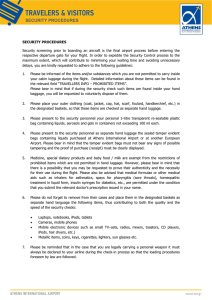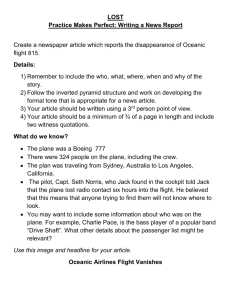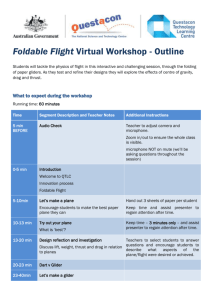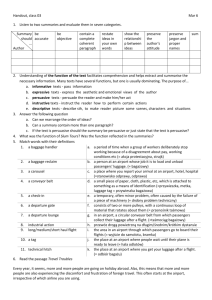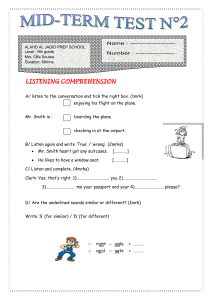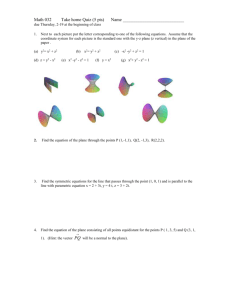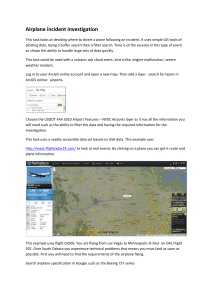Culture shock
advertisement
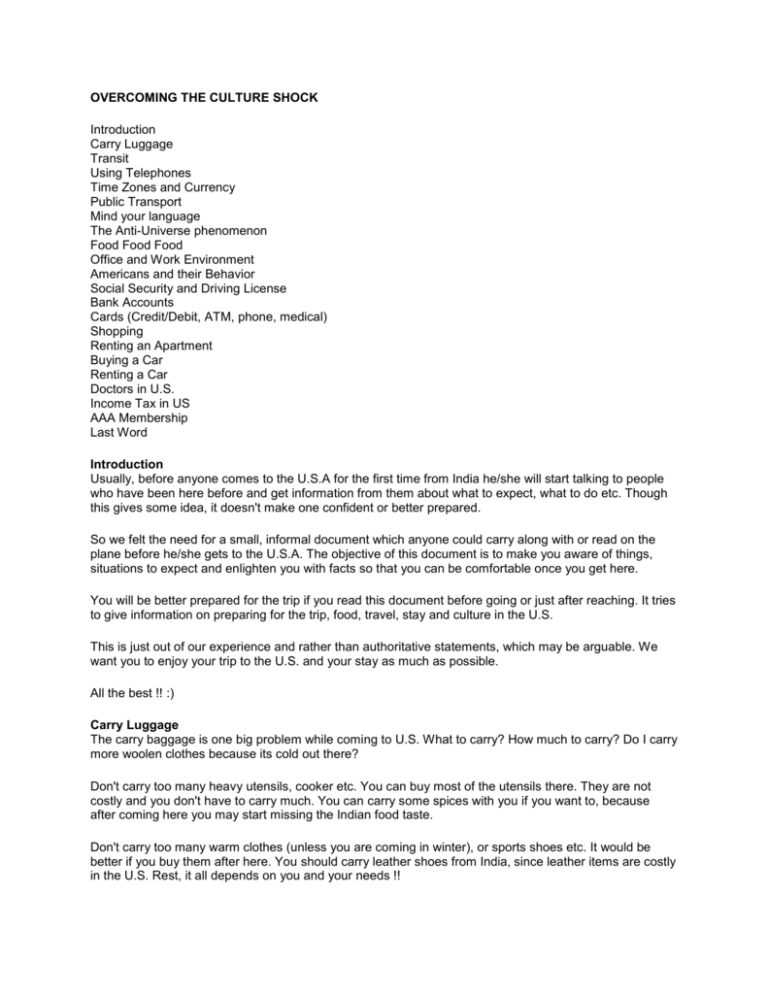
OVERCOMING THE CULTURE SHOCK Introduction Carry Luggage Transit Using Telephones Time Zones and Currency Public Transport Mind your language The Anti-Universe phenomenon Food Food Food Office and Work Environment Americans and their Behavior Social Security and Driving License Bank Accounts Cards (Credit/Debit, ATM, phone, medical) Shopping Renting an Apartment Buying a Car Renting a Car Doctors in U.S. Income Tax in US AAA Membership Last Word Introduction Usually, before anyone comes to the U.S.A for the first time from India he/she will start talking to people who have been here before and get information from them about what to expect, what to do etc. Though this gives some idea, it doesn't make one confident or better prepared. So we felt the need for a small, informal document which anyone could carry along with or read on the plane before he/she gets to the U.S.A. The objective of this document is to make you aware of things, situations to expect and enlighten you with facts so that you can be comfortable once you get here. You will be better prepared for the trip if you read this document before going or just after reaching. It tries to give information on preparing for the trip, food, travel, stay and culture in the U.S. This is just out of our experience and rather than authoritative statements, which may be arguable. We want you to enjoy your trip to the U.S. and your stay as much as possible. All the best !! :) Carry Luggage The carry baggage is one big problem while coming to U.S. What to carry? How much to carry? Do I carry more woolen clothes because its cold out there? Don't carry too many heavy utensils, cooker etc. You can buy most of the utensils there. They are not costly and you don't have to carry much. You can carry some spices with you if you want to, because after coming here you may start missing the Indian food taste. Don't carry too many warm clothes (unless you are coming in winter), or sports shoes etc. It would be better if you buy them after here. You should carry leather shoes from India, since leather items are costly in the U.S. Rest, it all depends on you and your needs !! Transit Enjoy your flight. Try to learn more about other nations from the co-passengers. There can be international stops on your way to the U.S. International Stops Generally passengers are required to get down at an International stop, which might be for Security checkup or fueling / cleaning of the airplane. You will be given a 'transit card` or say 'transit visa`. Normally the halt is for a couple of hours. Listen to the announcement which is always made before the international halt. You will hear information about departure time, gate number etc. After getting down at International Airport, you can move around in the airport. Be at the gate within 45 minutes of your flight's departure for the onward journey, because they may require to check your tickets or even the gate might be changed at the last moment. Once you get in, you are all set to take off for the final destination. Immigration The first thing you need to go through at the port-of-entry U.S. airport (international airport where you first land in the U.S.), after landing is the immigration and customs clearance. After that you may board a domestic flight to reach your final destination. Before getting down at your port-of-entry final international halt, inside the plane, you will be given a form to fill up called I-94. You will have to fill that up carefully. Feel free to get help from the flight crew. They will also ask you to fill you a 'declaration form' asking you about what objectionable items you have in your baggage (there will be a checklist). On alighting from the plane you may ask people or signs will guide you to the immigration. Keep your passport, I-20 and the form you filled inside the plane, handy. At the counter you might be asked some questions. TALK ABSOLUTELY TO THE POINT. DON'T TRY TO LIE. MAKE SURE THAT WHATEVER YOU SAY IS WRITTEN ON THE PAPER. You will be given the counter foil of I-94 form. Keep that very carefully. It may / may not be stapled to your passport.

